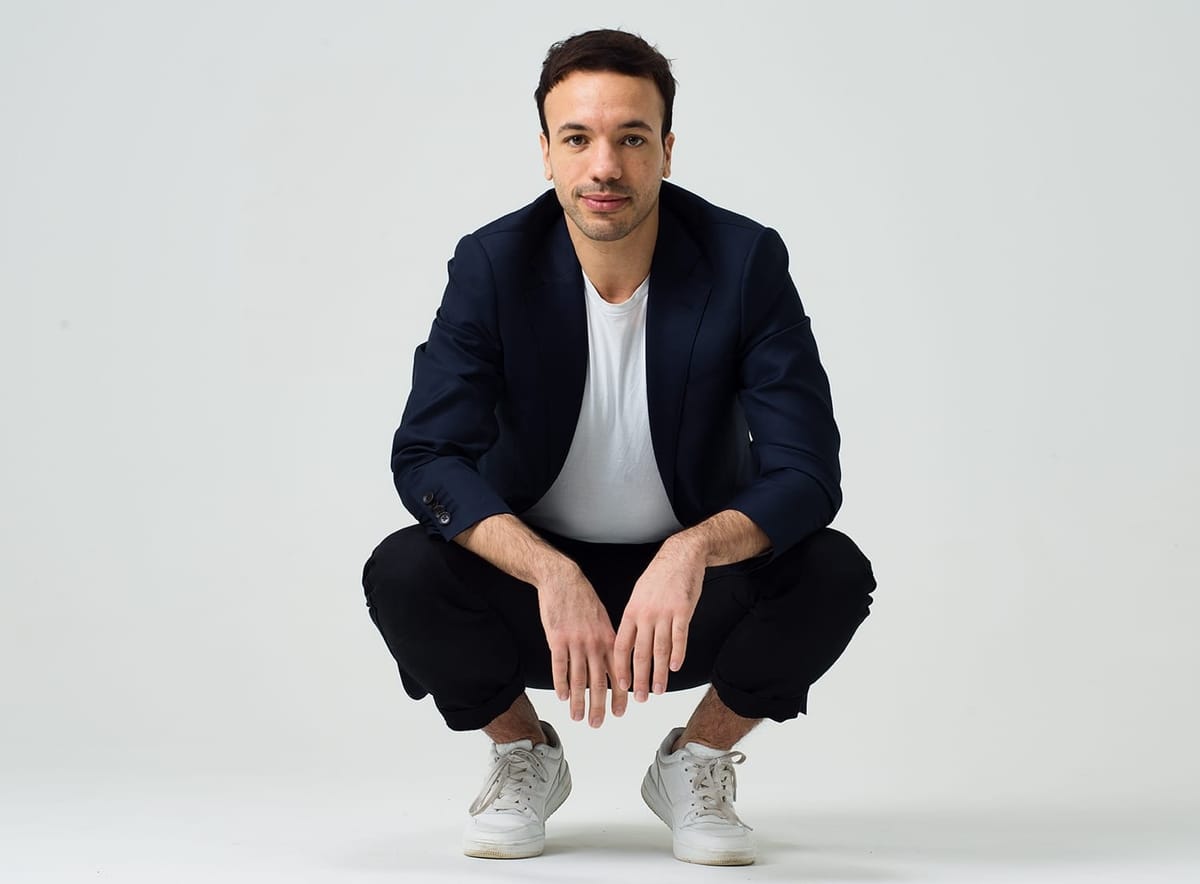The conversation around masculinity feels like a battlefield. On one side, you have calls to dismantle “toxic masculinity,” and on the other, the booming echo chamber of the “manosphere” telling men to reclaim their power. It’s confusing, it’s loud, and it leaves many wondering: what does it even mean to be a man today?
Transformative coach and Liminal co-founder Hugo Mega is cutting through the noise. In a recent chat on the How To Date Men podcast, he argued that we’re stuck in a loop, and the key to breaking free isn’t about blaming “toxic” traits but understanding the system that created them. His take is a game-changer, suggesting we shift our focus from a vague enemy to the very tools used to measure and rank manhood.


Ditching ‘Toxic’ for ‘Virility’
We’ve all heard the term “toxic masculinity,” but Mega believes it’s become a catch-all that’s lost its punch. “I think that toxic masculinity has become too mainstream at this point and it becomes a bit meaningless,” he explained. The real problem, he says, is that it creates a simple good vs. bad binary. This lets some men off the hook (“I’m not one of the bad guys!”) while the so-called “manosphere” co-opts the term, wearing it as a badge of honor.
Instead, Mega points to a more precise and, he argues, more revealing concept: virility.
“For me, a more interesting question than what is masculinity… would be like, what is virility and who defines what virility is?”
So, what’s the difference? While masculinity can be a fluid set of characteristics, Mega, referencing the work of French author Olivia Gazalé, defines virility as a *measurement tool* used to create a pecking order. “Virility is a way to establish a hierarchy between men,” he stated. Think about it: muscle mass, a thick beard, sexual conquests, risk-taking—these are all ways men are ranked against each other. It’s a system where manhood has to be constantly proven.
This idea isn’t just theoretical; it builds on foundational concepts in gender studies, like sociologist Raewyn Connell’s work on “hegemonic masculinity,” which describes how one dominant, idealized vision of manhood oppresses all other forms.


The Manosphere: A Global Backlash
This obsession with proving manhood is the fuel for the manosphere’s fire. And according to Mega, it’s a much bigger deal than you might think. “It’s not a US phenomenon… It’s really like a global phenomenon,” he warns. “It’s shocking to me how insidious and everywhere it is.”
He views the rise of alpha-male influencers as a direct reaction to social progress. As women and queer people demand equality, some men feel their long-held privilege is under threat. The manosphere gives them a playbook to fight back.
“It’s a reactive movement against progress, and it’s finger pointing and blaming women, basically, and queer people… It’s deriving from privilege being questioned.”
Recent reports from organizations like the Southern Poverty Law Center back this up, showing how manosphere ideology is spreading globally through social media, often acting as a gateway to more extreme political views.
The Queer Man’s Paradox
So where do queer men fit into all of this? Mega, who identifies as queer, speaks candidly about the complicated position gay men occupy. On one hand, he says, “us queer people are so privileged to have this capacity to subvert gender.” But on the other, gay men are still men and can benefit from and perpetuate the very system that oppresses others.
He describes a deep internal conflict that many gay men will recognize: the simultaneous attraction to and repulsion from traditional masculinity.
“I’m both appalled by the straight men and attracted to. And I think that’s the paradox of being gay sometimes is that, you know, we are excluded by traditional patriarchal masculinity but we are still men and we’re still part of it and contribute to it and fighting against it and attracted by it and you know, it’s a lot.”
It’s a reminder that no one is exempt from these power dynamics, and even those who are marginalized by the system can find themselves upholding it, whether for survival or status.


A Prison or a Liberation?
Ultimately, Mega’s message is one of conscious choice. By clinging to rigid, outdated definitions of what men “should” be, we limit ourselves and our relationships. He believes masculinity has “amputated men from their emotional literacy,” leading to shallow connections.
The path forward, he suggests, involves questioning the roles we’ve been assigned and deciding for ourselves how we want to live. It’s about moving from performance to authenticity.
As he powerfully concludes:
“Gender is either a prison or liberation… How are you living by conscious choice in these roles that were attributed to you? Did you choose this? Was this put upon you?”
It’s a question that challenges everyone to look beyond the labels and start building a version of masculinity—and humanity—that sets us all free.
The NSFW edition
If you want to admire some man-on-man action, our NSFW edition gives you every inch.
Sign in and check out our NSFW content – it’s free!
Marcus McNeil and Angel Elias for CockyBoys. Fuel for our fantasies.


* Photo from gaydar.vip






